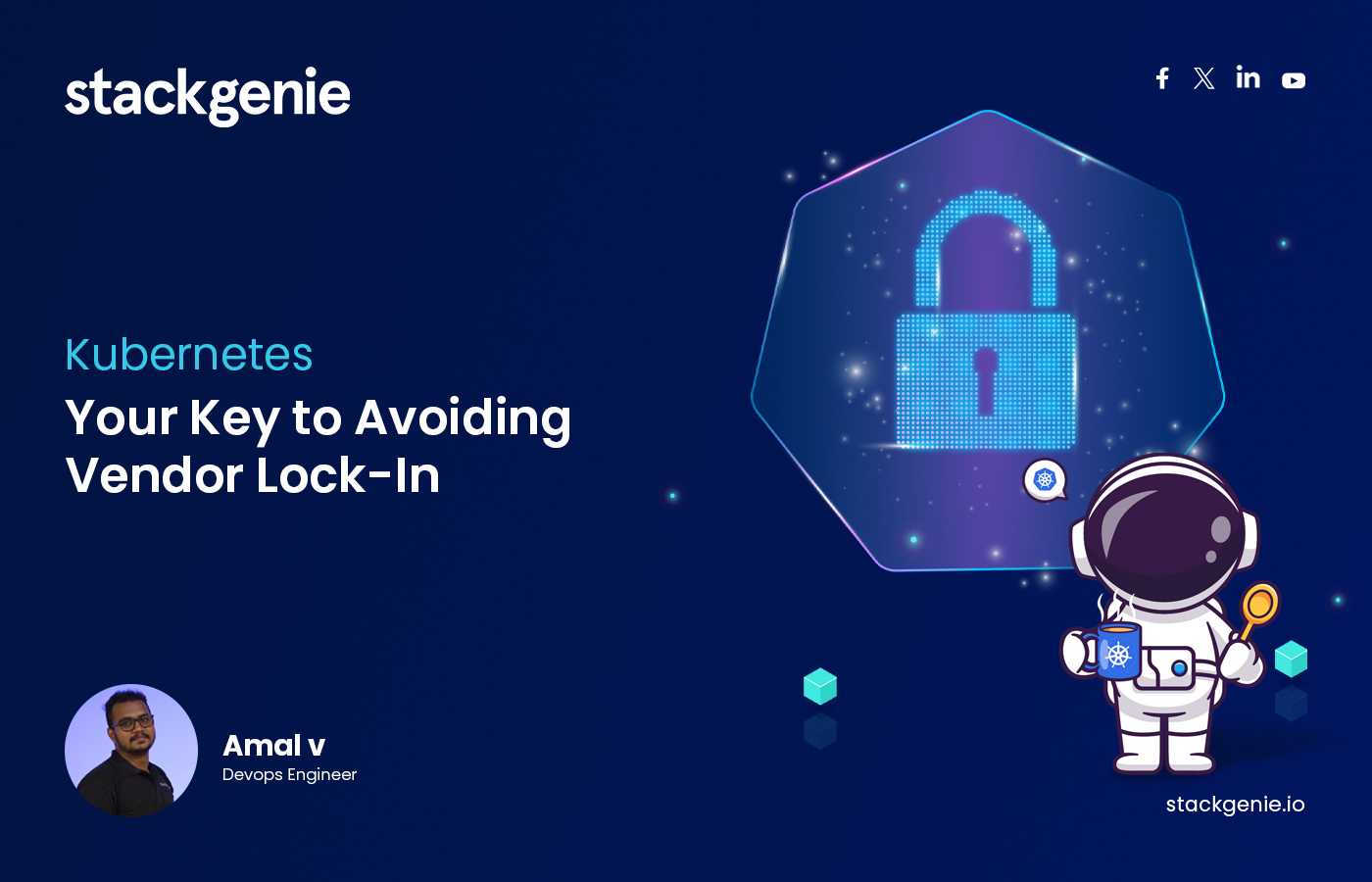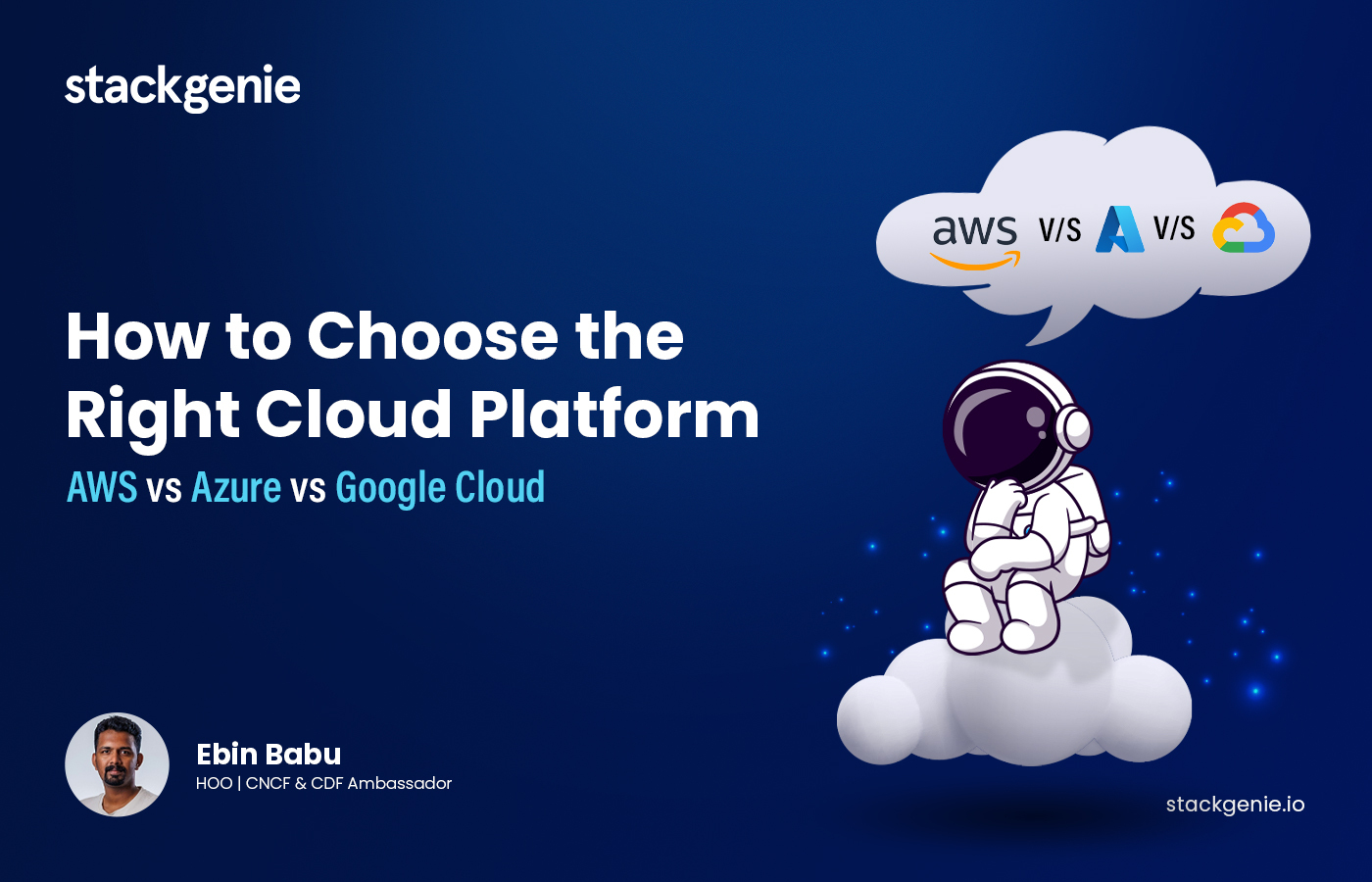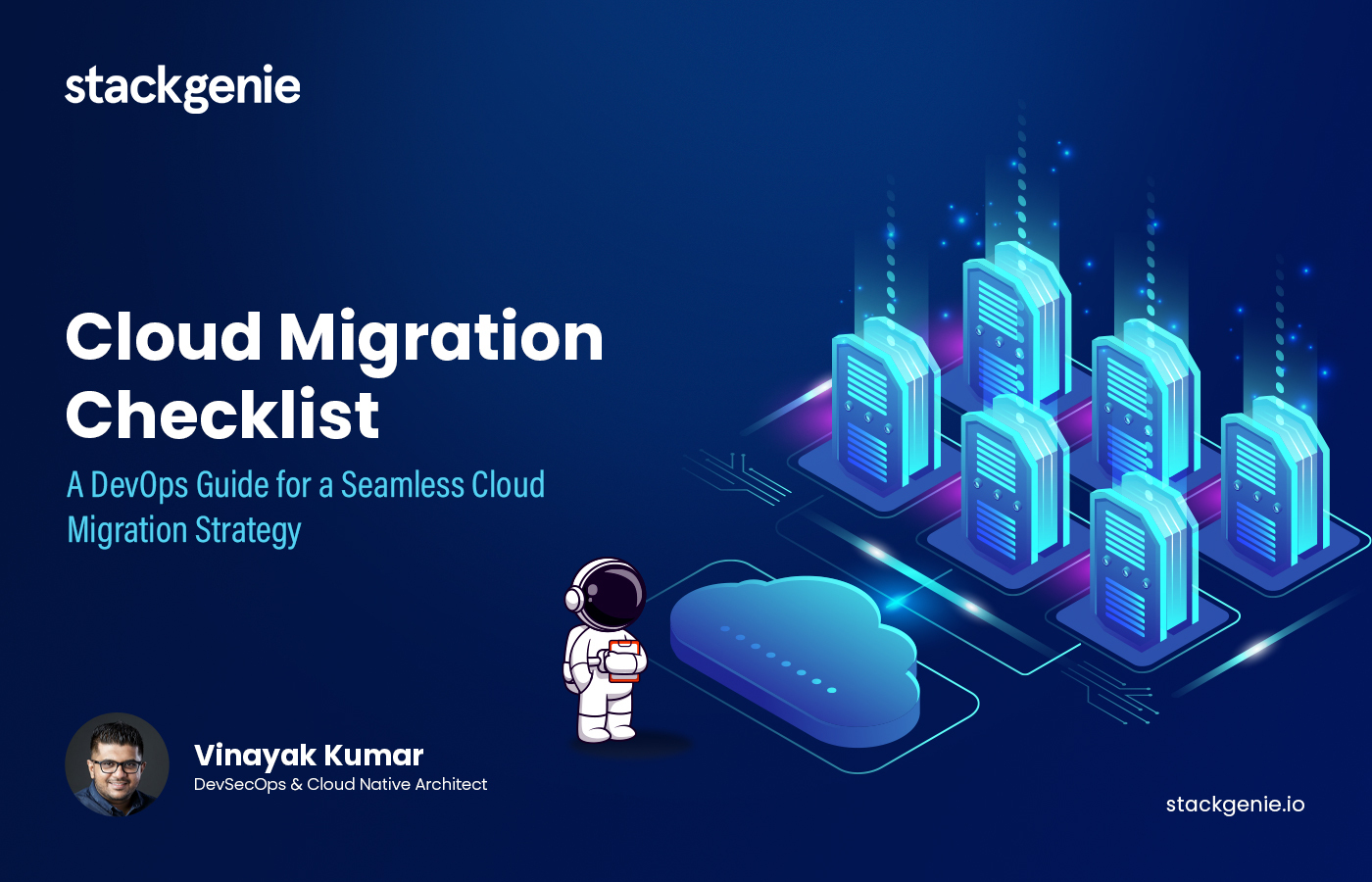Overview
The realm of cloud computing has been marked by rapid innovation and growth. Amidst the surge of services and technologies, businesses often find themselves pondering a critical question: How can they utilize the best cloud solutions without becoming overly dependent on a single provider? The answer lies in Kubernetes.
What is Vendor Lock-In?
Vendor lock-in, also known as proprietary lock-in, occurs when a company becomes excessively dependent on a single vendor for products and services. This dependency makes it difficult and costly to switch to another provider.

In the cloud context, vendor lock-in refers to relying heavily on a specific cloud service provider’s tools, services, and APIs. This can limit flexibility and increase the complexity and expense of migrating to a different cloud provider in the future. Avoiding vendor lock-in is crucial for maintaining agility and ensuring that a business can adapt to changing needs and technologies smoothly and without major disruptions.
IaC: A Stepping Stone, Not a Solution
While Infrastructure as Code (IaC) offers a promising path towards infrastructure automation and consistency, it doesn’t entirely eliminate vendor lock-in. IaC tools often have built-in integrations with specific cloud providers, making it easier to deploy and manage infrastructure on those platforms. While IaC scripts can be made portable to some extent, translating them for a different cloud provider requires significant effort. This can create a situation where migrating away from a particular cloud becomes cumbersome, hindering your flexibility and potentially limiting your access to better pricing or features offered by competitors.
Enter Kubernetes
Kubernetes, a groundbreaking open-source container orchestration platform, is transforming the vendor landscape. It provides a consistent environment across different cloud providers, enabling businesses to deploy, manage, and scale containerized applications seamlessly. By abstracting the underlying infrastructure, Kubernetes allows companies to avoid vendor lock-in and maintain flexibility, making it easier to switch or use multiple cloud providers without significant reconfiguration.
Key Features Addressing Vendor Neutrality:
- Open-Source Nature: Kubernetes is driven by a vast community of contributors. Its open nature ensures that it’s not tied to the interests of any single vendor.
- Containerization: Containers package applications and all their dependencies together. With Kubernetes, these containers can run consistently across multiple environments, whether on-premises, in public clouds, or hybrid cloud setups.
- Extensibility: Kubernetes is designed to be highly extensible, supporting a wide range of plugins and integrations. This allows businesses to easily incorporate services from different vendors, tailoring their infrastructure to meet specific needs.
- Consistent API Surface: Kubernetes provide stable API endpoints mean that applications and configurations are portable across different cloud environments.
Read Related: Kubernetes vs. Docker Swarm
Real-World Kubernetes Success Stories
Leading global businesses, such as Spotify and Shopify, have successfully migrated their infrastructure across cloud vendors using Kubernetes. They’ve enjoyed cost savings, increased flexibility, and stronger negotiation stances with cloud providers.

By adopting Kubernetes, Spotify which is a leading music streaming service was able to migrate its services seamlessly across different cloud providers. This migration enabled Spotify to optimize costs, improve resource utilization, and enhance the overall performance of its applications.
Similarly, Shopify, a major e-commerce platform, need a solution to handle high traffic volumes. Kubernetes provided them with the ability to scale its infrastructure dynamically to meet demand, ensuring reliable and fast service for its merchants and their customers.
Taking Control of Your Cloud Journey
With Kubernetes, businesses are no longer compelled to put all their eggs in one cloud provider’s basket. They have the freedom to:
- Optimize Costs: Kubernetes enables businesses to switch or distribute workloads across different cloud vendors based on price or performance metrics.
- Diversify Strategy: Supports multi-cloud strategies, which can significantly enhance disaster recovery, regional availability, and service offerings.
- Stay Agile: The cloud landscape is continuously evolving, with new services and providers emerging regularly. Kubernetes provides the ability to adapt to these changes effortlessly.
Conclusion
In the dynamic landscape of cloud computing, Kubernetes emerges as a beacon of flexibility and independence. By ensuring businesses aren’t bound tightly to a single vendor, Kubernetes truly champions the spirit of innovation, agility, and choice.
Ready to embrace a future without vendor constraints? Dive deep into Kubernetes and harness the freedom it offers.
At Stackgenie, we specialize in helping businesses navigate the complexities of the cloud environment.
👉 Consult with Our Kubernetes and Cloud Experts Today!


